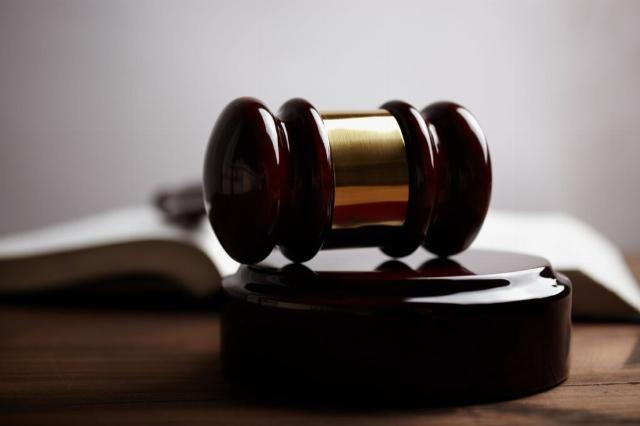Overcoming the tyranny of regulation
One way the liberal agenda progresses is through the tyranny of regulations. Congress often enacts laws that have disastrous and even unintended consequences on business, education, and society. These laws can generate regulations that liberal administrators interpret in manners Congress never envisioned.
When citizens or firms challenge these rules and regulations, their efforts can become mired in court processes that can take years to resolve. Many affected parties are forced out of business as they wait for justice. In this waiting attrition game, liberal regulators have gamed the system to work in their favor.
With the coming administration, many are asking how to overturn the vast maze of woke regulations burdening the economy and other sectors. The Biden Administration was especially heavy on regulation in its efforts to impose its wrongheaded eco-agenda. It has bent the rules even to the point of forcing plant closings to reach its climate emission goals.
Certain options are not on the table. Changing laws is time-consuming and consensus is difficult to reach, especially with slim majorities in Congress. Informing the courts of a change in legal philosophy and interpretation is deemed an insufficient reason for court intervention and change. The plague of partisan politics in these matters should be avoided at all costs.
Lawyer Chris Horner writes in the Wall Street Journal that quick change is possible if government lawyers follow certain procedures embedded in the American legal system.
The beauty of law is that certain equity mechanisms exist that allow for quick changes that favor the better practice of justice. Law need not be a rigid framework that systemizes abuse without redress. Instead, proper law acknowledges the reality of human error and adjusts accordingly.
Horner believes that regulation overreach can be remedied quickly by using what is called "confessing error." This would not involve new legislation, partisan politics or radical changes in philosophy.
In “a confession of error,” government attorneys simply inform a court that the state has legally erred in some aspect of a law, requiring an annulment or reconsideration of a rule. By confessing error, the government admits a mistake that naturally calls for correction.
Confessing errors occurs when new evidence arises, circumstances change or bad interpretations subvert the purpose of the law. It becomes evident that measures must be taken to adapt the law by changing its rules and regulations.
In the present situation, the new Trump Administration would not have to look for cases right away. The current (and stalled) challenges to flawed regulations can be immediately brought up for review.
At the same time, government lawyers can seek out other improprieties in the public record that are based more on leftist ideology than a concern for the common good. Some regulators have openly admitted in public documents to bending the rules that advance their causes.
When such cases are obvious and well presented, Horner believes that “Courts would almost certainly accept a confession of error of law, fact or procedure supported by documents that illustrate the admitted wrongdoing.”
In this way, the runaway power of regulators could be checked and justice delivered. If the new administration fast-tracks its confession of errors, it could remove many of the woke shackles weighing down industry and society. Regulation does not have to be a deadly swamp with no escape. Practices like the confession of errors are there to quickly relieve Americans in distress.
Unfortunately, those benefiting from excessive regulation will oppose this move. For them, any confession of errors can be seen as an admission of guilt.
However, due to the discreet nature of the procedure, confessing error assigns no blame but merely acknowledges the mistake. Thus, it would solve the problem of excessive overreach quickly, inexpensively and amiably. The new administration should pursue this policy with all urgency.

Image: RawPixel.com
FOLLOW US ON
Recent Articles
- New York Greenlights Quarantine Camps
- Reality Check for Democrats
- A MAGA Siege of the Democrats’ Deep State
- Why Incel and 4B Culture Matter
- Defending Donald Trump: A Response to Jeffrey Goldberg and The Atlantic on the Signal Leak
- Are Judges Complicit in Lawfare?
- Deep Dive: The Signal Chat Leak
- Mark Steyn’s Reversal of Fortune
- Where We Need Musk’s Chainsaw the Most
- Trump Is Not Destroying the Constitution, but Restoring It
Blog Posts
- A Ph.D. in ‘Molecular and Cell Biology’ shows the difference between credentials and knowledge
- Nasty Venezuelan migrant who flashed taxpayer dollars and urged squatting, gets thrown out
- Watch white leftist women’s brains breaking—and repairing—in real-time
- The last, best hope ...
- In Pennsylvania, are Democrats stealing votes again?
- Knife control comes to the U.K.: Prime Minister Starmer bans Ninja swords
- This Tuesday, Wisconsonites must vote for Brad Schimel for the State Supreme Court
- Was Vietnam worth the cost?
- Democrats should get a clue from the Palestinians who are now marching against Hamas
- Trump takes on Fauxahontas's brainchild
- Consumer Sentiment Survey: This too shall pass
- If they only had knife control....
- Newsom and Walz struggle to appear normal
- Anti-Trump lawfare: yes, it's a conspiracy
- Criminal attack? You're on your own.






